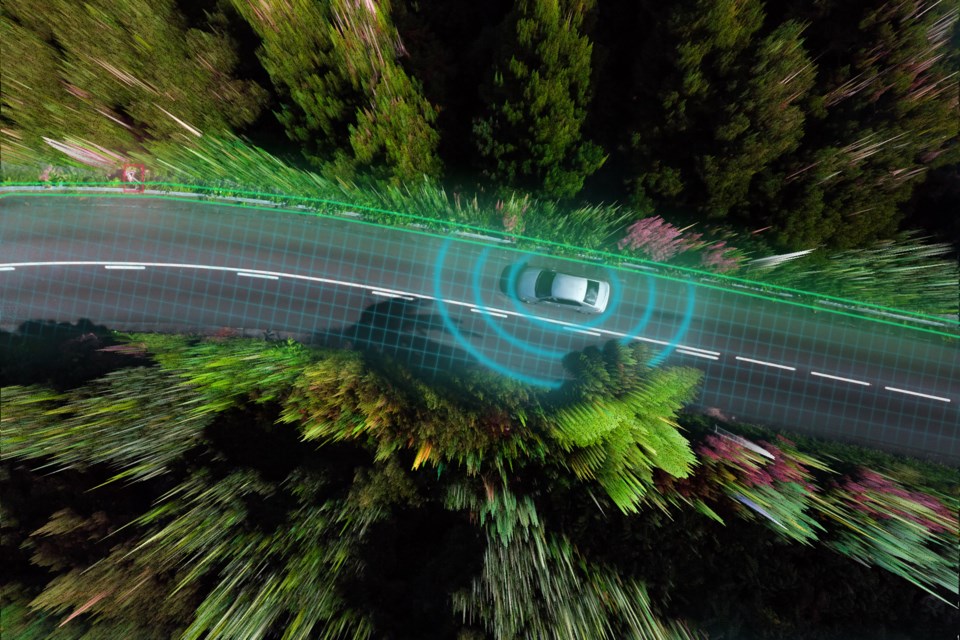Even though the most popular game my kids now play is Forest Fire (“when the fire comes we will…”) there is still hope that the future will offer a better quality of life than we have today. But in order to get to a better future, we need a vision of what that looks like. Knowing that the Resort Municipality of Whistler (RMOW) plans to miss its own climate targets announced in December 2020, climate action advocacy group SMARTWhistler presented a vision of the future to RMOW council this past winter. Here are some summer 2021 ideas.
In 2030, Whistler will ideally:
Have a bike highway network, allowing bikes, e-bikes and small electric vehicles (golf carts) to be the fastest means of getting around the Valley. There will be fantastic and convenient parking. Studies show that cycling increases sense of community and lowers anxiety (as well as many other health benefits). Grade 8 students in Whistler will be given a gift of an e-bike, to allow for an adolescence of full mobility;
Share everything: those in the know refer to this as the Internet of Things. We will no longer crave ownership over items we use only a dozen times per year;
Parks and Beaches: There will be summer attendants at all RMOW parks, so that nobody needs to bring an SUV full of Chinese-made (if only China would lower its emissions, right?) beach products to the park;
SUPs/Kayaks/Canoes: No private equipment will be needed. There will be SUPS and pumps at all lakes so that nobody needs to bring and maintain their own.
Trailheads: fleets of shared bikes, e-bikes and snowmobiles. No need to own a pick-up truck to recreate these ways;
Cars: Residents will share/rent their personal vehicles. Small electric vehicles (think golf carts) will be more prevalent than pickup trucks, because it’s only 10km from Cheakamus to the Village;
Storage: with the emergence of a true sharing economy, we will find we have a lot more space in our homes as we don’t need to own our own everything. This will become creative spaces, and artists will be celebrated for the crucial role they play in this lower-emission society;
Autonomous Vehicles (AVs): will be the primary form of vehicle travel. Once the technology becomes cheap enough (likely in the next five years), the cost of travel is expected to reach 10 cents/km, and we will be riding in electric minibuses/limousines, or we can ride for free in the Starbuckmobile. Imagine unlimited rides anywhere for $120/month using shared electric vehicles;
Landscaping: will be all-electric and quieter;
Internet: After years of being forced by the wealthiest families in Canada to have passwords on our internet, neighbours decided to share their networks. The RMOW will take the lead and provide internet for the entire valley without raising costs (much less than the $70-plus we all pay today);
Electrification: after years of extensive outreach, Whistler is able to shut off its fracked fossil gas pipeline (natural gas is mostly methane). The Village shares an electric heat pump system between commercial and residential buildings allowing for heating and cooling. The piping for this will be visible as the cost of burying this infrastructure will have to be addressed AFTER we have lowered our emissions;
RMOW electrification: the fuel pump that was way over budget in 2021 will be retired (one of many stranded assets) because we only needed seven more years of liquid fuels before we managed to electrify all RMOW equipment;
Free Transit: The RMOW and B.C. already admit this is a good idea, and are currently working on it. But transit ridership will continue to decrease as the bike highway and the flexibility of AVs (they will be fleets, not personal) will disrupt this outdated form of mobility;
Regional Transit: As shared AVs become the norm, people will be happy to share a trip in order to save costs, and because the user interface makes it so simple to do so. Why would I waste my time focusing on crappy drivers when I could be chillin’?
Carbon Tax: in an effort to actually lower emissions, the Trudeau government raised the carbon tax much faster than expected. We will be taxed not just for gas, but we will have international carbon tariffs so that the emissions from Chinese-made products will be attributed to us, the user of these products—accurate accounting will allow us to understand our true emissions.
Staycation is the new vacation: get to the hotel in 10 minutes, no ferry lineups, no taking off shoes at security checks, just the three Rs: robes, relaxation and room service!
We believe that these transitions will improve our quality of life. Some things will be different as we tackle the climate emergency; the status quo is still pretty sweet for most of us. But life will be better once these transitions are completed. Which of these suggestions will decrease quality of life? Let the brainstorming continue…
Let’s live it up while we lower our GHG emissions.
Amanda and Brendan Ladner/SMARTWhistler.org




